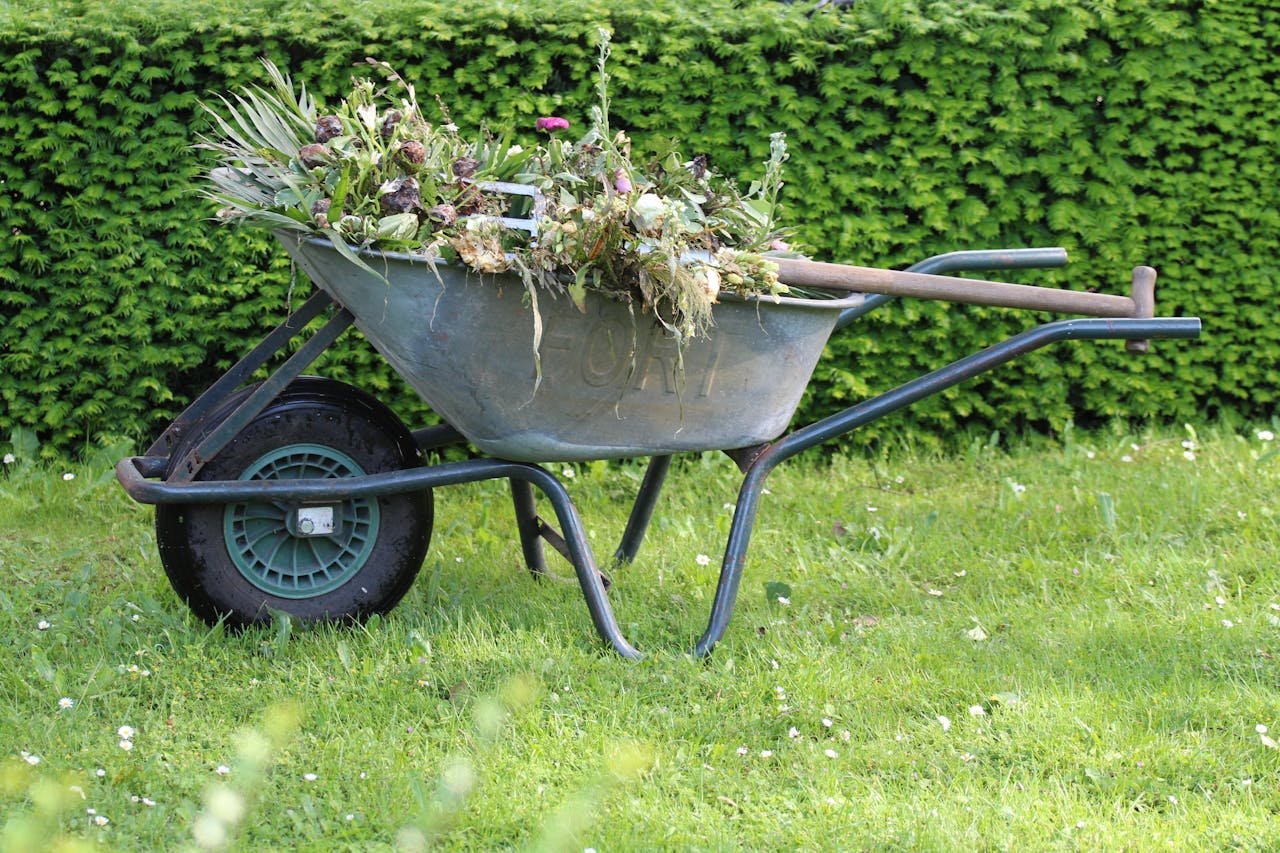Gardening is a labor of love that brings nature’s splendor straight to your door. Even the most ardent gardeners may question if it’s time to clean up the garden.
Proper maintenance provides a thriving environment and significantly impacts the health of your plants and the local ecosystem. In this post, we’ll examine key timing indicators, eco-friendly methods, and a detailed cleanup strategy to help you decide whether your garden needs some TLC.
Timing Your Garden Cleaning
The optimal time for garden cleanup can vary depending on a few crucial factors. Understanding these can help new and experienced gardeners keep their spaces in top condition.
Assessing Soil Temperature
Checking the soil temperature is one of the first signs that it’s time to get your garden in order. Soil temperatures should preferably be above 55°F (13°C) for planting and garden upkeep. A soil thermometer can help you determine the optimal time for your cleanup, allowing you to work efficiently without disrupting the ecosystem prematurely.
Observing Fruit Tree Blooming Stages
The flowering stage of your fruit trees also signifies the need for housekeeping. Pruning is most effective after the blooms have gone and the fruits have begun to set, as it removes any dead or diseased wood that may be impeding the tree’s output.
Monitoring Lawn Growth
Another important consideration is monitoring your lawn’s growth. A sudden increase in growth may signal that weeds or other undesirable plants are taking hold in your garden. If your grass grows fuzzily in places, it could be time for rejuvenation!
Ecological Advantages of Leaving Natural Debris
While the image of a neat garden is tempting, it’s important to remember the environmental benefits of retaining some natural detritus.
Importance of Leaf Litter
Leaf litter provides vital insulation to the soil during the colder months and aids in moisture retention in the summer. It provides a habitat for various insects and microorganisms that benefit your garden. Leaving some debris is one method to promote a balanced ecology.
Benefits of Cavity-Nesting Bees and Butterflies
Many beneficial insects, such as cavity-nesting bees and butterflies, rely significantly on natural debris for protection and food. Dead stems, leaf heaps, and natural mulch can provide important habitats for these organisms. Creating a habitat for these pollinators enhances your garden and promotes a healthier environment.
Potential Risks of Premature Cleanup
Being overzealous in the cleanup process can lead to unforeseen repercussions. Understanding the hazards involved is critical.
- Disrupting Habitats: Premature leaf litter removal can disturb the lives of insects and small creatures preparing for winter. Many people depend on the debris for warmth and nourishment.
- Soil Disturbance: Over-tilling or overly disturbing the soil during a cleanup might kill beneficial microorganisms that aid plant growth.
Sustainable Gardening Practices
A sustainable gardening method is essential for sustaining an eco-friendly yard. The following are some helpful methods to consider.
Using Signs and Fencing
Consider utilizing organic signage and natural fences to secure specific areas of your garden. This can assist in avoiding overzealous cleanups in certain parts that may require additional attention or development time.
Creating Accessible Paths
Creating well-defined walkways throughout your garden can help reduce soil compaction and improve access during cleanup activities. This method streamlines labor and promotes soil health.
Encouraging Biodiversity in Your Garden
Biodiversity is critical to the sustainability of your garden. Plant a variety of varieties with varying bloom dates and food sources. Diversifying your garden will attract more species and keep it vibrant throughout the seasons.
Comprehensive Cleanup Plan
A thorough cleanup plan is essential to a successful planting season. Here are several key tasks to include:
Pruning
Proper pruning promotes healthy growth and a higher yield. Remove dead or diseased branches first, then shape your plants to maximize sunshine exposure.
Mulching
Mulching is not only aesthetically beautiful but also improves soil health. It retains moisture, inhibits weeds, and increases soil nutrients as it decomposes.
Managing Perennial Plants
Perennial plants frequently benefit from managed cleanup. Trim down old foliage and dead flowers to allow for fresh development, giving these plants the best chance of success this season.
The importance of fall cleanup
Fall cleanup is critical for getting your garden ready for the colder months. Here’s what you should focus on:
Preparing for winter
Removing wasted plants and trash can help prevent plant diseases and pest infestations in the springtime. Preparing for dormancy can also help you clear out your garden’s perennials and make room for new growth.
Ensure Healthy Soil for Spring
An effective fall cleanup lays the groundwork for healthy soil come spring. Clearing waste, adding organic matter, and aerating the soil will improve the nutrient availability for your plants. This proactive approach results in a more fruitful growth season.
Conclusion
Finally, maintaining a garden necessitates balancing cleaning and conserving its environmental benefits. Assessing the appropriate time for cleanup, recognizing the function of natural debris, and following sustainable methods will result in a thriving, attractive, and environmentally friendly garden. With careful treatment, your garden
FAQs
When should you clear out your garden?
You should clean out your garden in the early spring or autumn, depending on your climate. Regular evaluations during these seasons can help you decide the ideal time to clean up.
How many days can you go without watering your garden?
Most gardens can go 3 to 7 days without water, depending on the plant species, weather, and soil conditions. Watch for symptoms of wilting or dryness.
Is it too late to create a garden?
Starting a garden is rarely too late; many plants can be sown or moved anytime during the growing season. Simply keep your local environment and the growing times of the individual plants in mind.
Should I leave the dead plants in the garden?
Leaving dead plants can help wildlife and soil health, but they should be removed if they are sick or attract pests. Achieving equilibrium is critical.

